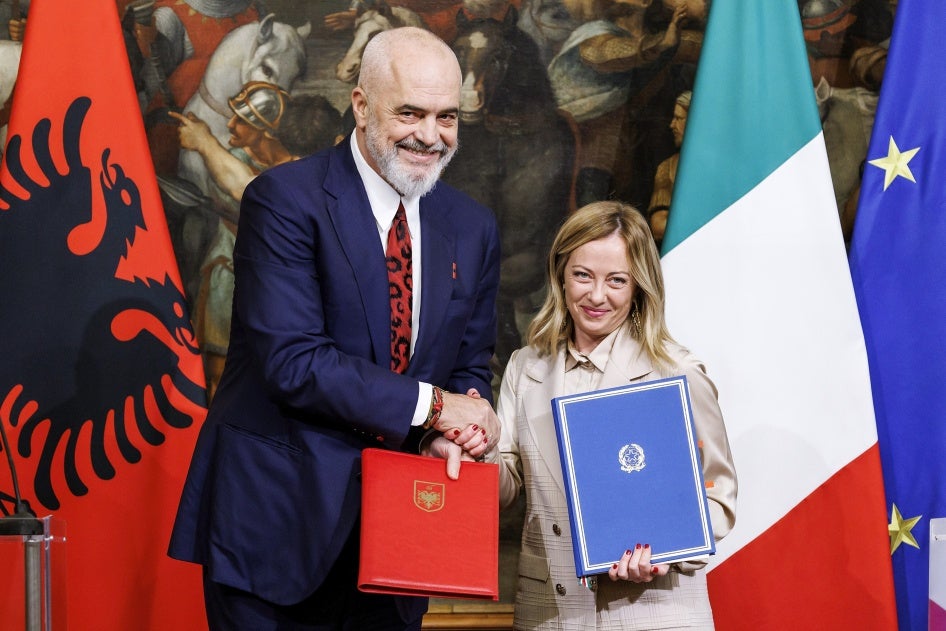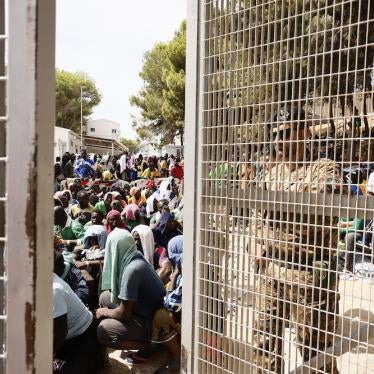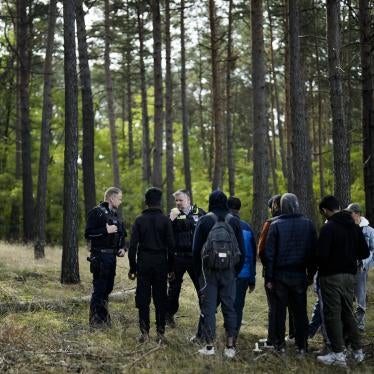Italy's detention deal with Albania breaches international law and is abusive in many aspects, including by potentially creating legal limbo for vulnerable people. Yet, the plan—to detain in Albania people interdicted or rescued by Italy in the Mediterranean Sea—looks set to go ahead.
On January 29, the Albanian Constitutional Court said the deal doesn’t violate Albania’s constitution, paving the way for parliamentary examination in Albania. In Italy, the agreement is now before the Senate, having passed the lower house of parliament earlier in January.
The plan commits Italy to setting up two detention centers with a capacity of 3,000 people in Albania, where people determined to be adult men, including asylum seekers picked up at sea by Italian Coast Guard and military ships, will be sent for identification, asylum processing, and repatriation. Women, children, and anyone categorized as “vulnerable” would be exempt. By some estimates, the plan could cost €700 million over the first five years.
Italy’s latest gambit to offshore its responsibilities is all but guaranteed to violate people’s rights. Following its abusive deal with Libya, Italy now wants to take people who have effectively reached the country outside of the EU, breaching fundamental tenets of rescue at sea and undermining asylum rights and freedom from arbitrary detention. It is also unlikely to deter people from making dangerous boat crossings.
The plan raises many questions. How will diverting Italian rescue vessels to disembark in Albania, instead of the nearest safe Italian ports, impact Italy’s search-and-rescue operations in the Mediterranean? Will families be separated? Where, how, and by whom will “vulnerable” men be identified? How will Italian authorities guarantee fair asylum procedures or judicial review of detention in Albania?
It’s unclear what law will even apply. Italy says Italian and EU law, but the European Commission initially said the plan is “outside EU law.” It later changed tack, saying it would monitor implementation to assess “compliance with EU law.” The Albanian Constitutional Court said Albanian law would also apply in the detention centers.
The Council of Europe's Commissioner for Human Rights warned that “the lack of legal certainty will likely undermine crucial human rights safeguards.” The UN High Commissioner for Human Rights said last week that similar extraterritorial deals have “caused great suffering and harm.”
The European Commission needs to step in, both to evaluate whether the plan is compatible with Italy’s obligations under the EU Charter of Fundamental Rights and EU asylum law and to send a clear message to Albania that its accession to the EU requires it respect these standards.










